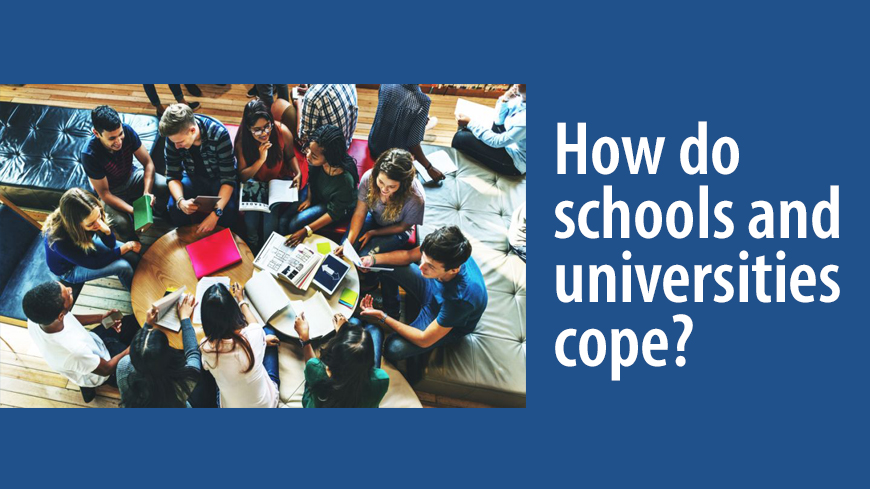Interview with Liviu Matei, Provost of the Central European University

Liviu Matei is Provost of Central European University and a Professor of Higher Education Policy. He taught at universities in Romania, Hungary and the U.S., consulted extensively in the area of higher education policy. He conducted applied policy research projects for the World Bank, UNESCO, OSCE, the Council of Europe, the European Commission, and other international organizations (intergovernmental and non-governmental), national authorities and universities from Europe and Asia. He is a member of the Board of Trustees of the American University of Central Asia and serves on the editorial boards of the Internationalisation of Higher Education Journal and the European Journal of Higher Education.
What has been the biggest challenge faced by your university during the COVID-19 crisis and how have you addressed it?
My University, Central European University, has been affected in ways that are similar to those of any other university in Europe and in the world, but we also had some additional challenges. As you might know, our University was forced to move out of Hungary following the adoption of restrictive legislation by the Hungarian Government. As a consequence, we had to move the entire University from one country to another, in the middle of a crisis, with lockdown and travel restrictions in place. In addition, we are an international, if not global University, with students and staff from over a hundred countries worldwide. It was not easy to keep in touch with our students and our professors, some of whom went back to their own countries. In short, we had to go through a double crisis - the COVID-19 crisis and the move to another country.
Do you think that there will be changes in your university once this crisis is over? If yes, could you highlight the most important in your opinion?
There will certainly be changes in our University following this crisis and, more precisely, following what we have learned during the crisis. We have learned that we can do things differently in terms of teaching, research, international cooperation and administration. But I think that the most important change was the attitude of academic staff towards online teaching. Previously, they were almost entirely negative. The majority of my colleagues neither wanted to do, nor hear, about online teaching. During the crisis, forced to move online from one day to the next, it actually worked remarkably well. Now, we are thinking about how we can do it in the long run, how we can take advantage of new technologies internally and support online collaboration with other universities. I think this is not going to be easy. There will be no full transition to online education, but the attitude of the faculty and students is changing in significant ways and this should be followed through with new policies and practices in universities.
Looking beyond your own institution, how do you think higher education will be affected more broadly by the COVID-19 crisis and how will it adapt to the post-COVID world?
There will certainly be changes in higher education in the post-COVID world and these changes will involve at least a partial rethinking of pedagogy and of the mode of delivery of our core activities more broadly, both in terms of teaching and research. International cooperation will also be influenced; I would not say affected, because this crisis will not necessarily influence international cooperation in a negative way. Universities have discovered that they can cooperate in new ways to address the challenges arising from the crisis and these new ways would be interesting and different territory to explore. We have also discovered that beyond teaching and research, there is much more we can do online, including accreditation, for example. My University was in the process of accrediting some 40 degrees in Austria when COVID-19 struck and it became no longer possible to continue accreditation reviews in the traditional way. So the accreditation agency in Austria moved all these activities online, including site visits, and it has worked. As another example, I was a member of an evaluation committee in a large European Commission programme and we realized that we could do the entire evaluation online, without travel, thus saving on expenses and on time and protecting the environment. I will not try to summarize all the changes here, as I am sure we can add changes in outreach activities, for example, but we can certainly expect significant changes in all or almost all areas of university activity.



